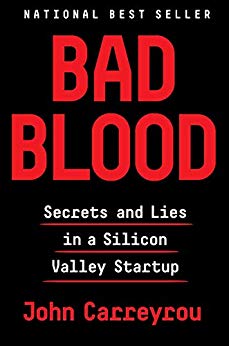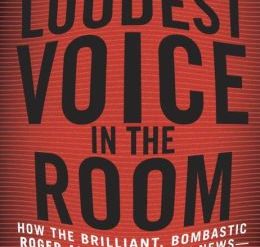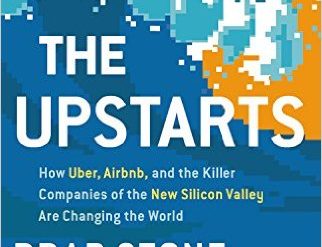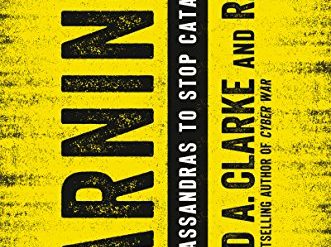
Estimated reading time: 5 minutes
Bad Blood is a cautionary tale about the corrosive effects of corporate power in Silicon Valley. It’s also vivid evidence for the invaluable role played by investigative journalists, whose work constitutes one of the few checks available in our society on corporate misbehavior. The multi-billion-dollar Theranos scandal detailed in this book is the most dramatic and best-known story of corporate fraud since Enron collapsed in 2001. And the Wall Street Journal reporter who spent years bringing the Theranos story to light brilliantly deserves one of the field’s highest honors: the George Polk Award in Journalism for Financial Reporting he received in 2016.
Massive financial fraud and other crimes
Memories are short in our fast-changing world, so it’s worthwhile recounting the basic facts in the tale. A 19-year-old Stanford dropout named Elizabeth Holmes founded Theranos in 2003 to develop and market a revolutionary new technology to run diagnostic tests on tiny amounts of blood drawn through fingertip pricks. By 2014 she had raised a total of $700 million from investors and built a company with hundreds of employees and a stock market valuation of $10 billion.
Bad Blood: Secrets and Lies in a Silicon Valley Startup by John Carreyrou (2018) 328 pages ★★★★★
Unfortunately, as many employees learned to their chagrin through the years, the technology was what Silicon Valley calls “vaporware.” It didn’t work. And when a reporter got wind of the truth in 2015, the end of the fantasy was in sight. Eventually, Holmes’ house of cards came crashing down. This year, the company, Holmes, and the former president of the company (and her erstwhile lover) were charged with massive fraud by the Securities and Exchange Commission. They also face investigation by federal prosecutors, state attorneys general, and other officials. The company is reportedly close to bankruptcy, and Holmes’ personal fortune, once estimated as greater than $5 billion, has now virtually disappeared.
A charismatic leader and a blue-ribbon board
Bad Blood recounts the rise of Theranos, the growing fraud and employees’ disillusionment, and the company’s gradual downfall once a reporter for the Wall Street Journal pursued the truth. John Carreyrou patiently details the development of the company’s technology and Holmes’ charisma that enabled her to entice major corporations into partnerships. And he notes how she succeeded in attracting a blue-ribbon board of directors that included former Secretaries of State Henry Kissinger and George Shultz, former Senator Sam Nunn, former Secretaries of Defense General James Mattis and William Perry, super-lawyer David Boies, and several of Silicon Valley’s most celebrated venture capitalists. Oracle founder and CEO Larry Ellison, a close friend of hers, was a major early investor and advised Holmes on an ongoing basis. And News Corporation Chairman and CEO Rupert Murdoch invested $125 million late in the company’s growth, becoming its biggest investor.
A cautionary tale about corporate power in Silicon Valley
Is it any wonder that reporters, disgruntled employees, and government regulators were reluctant to take on the company? Carreyrou chronicles the sad story of how Holmes and her lover intimidated unhappy employees and former employees with blackmail and threats of expensive lawsuits. And he notes the extensive role David Boies played in this effort. Boies and his firm aggressively went after Carreyrou and all his informants, using private investigators to track down where they lived and, in some cases, cow them into retracting their testimony to Carreyrou. It was only because Carreyrou was scrupulous in his attention to detail and refused to be intimidated, his editors courageously backed him up, and Murdoch (who owns the Wall Street Journal) declined to intervene, that the truth came to light despite all the pressure. And once the Journal had brought out the truth, government agencies got into the act.
Published reviews sometimes emphasize how much Bad Blood reads like a thriller. It is, indeed, suspenseful, tightly plotted, and deeply engaging, because the characters come to life. But more importantly it’s also the truth. And that has to mean something about the state of American society in the early 21st century.
About the author
The French-American investigative journalist John Carreyrou has twice won the Pulitzer Prize working for the Wall Street Journal. Bad Blood is based in part on a series of investigative reports he wrote about Theranos for the paper beginning in 2015. As he writes in an Author’s Note at the outset, the “book is based on hundreds of interviews with more than 150 people, including more than sixty former Theranos employees.”
For related reading
I’ve reviewed two other books about biotech:
- For Blood and Money: Billionaires, Biotech, and the Quest for a Blockbuster Drug by Nathan Vardi (The drama behind two biotech startups)
- The Code Breaker: Jennifer Doudna, Gene Editing, and the Future of the Human Race by Walter Isaacson (CRISPR technology may change the world as we know it)
If you want to know after the time covered in Carreyrou’s book, read “She Never Looks Back” by Nick Bilton in Vanity Fair (February 20, 2019).
For a satirical treatment of Theranos, see Sucker by Daniel Hornsby (A comic send-up of a Silicon Valley scandal). NB: I didn’t like the book.
Check out 5 best books about Silicon Valley and My 10 favorite books about business history.
You might also be interested in Science explained in 10 excellent popular books.
And you can always find my most popular reviews, and the most recent ones, on the Home Page.

























